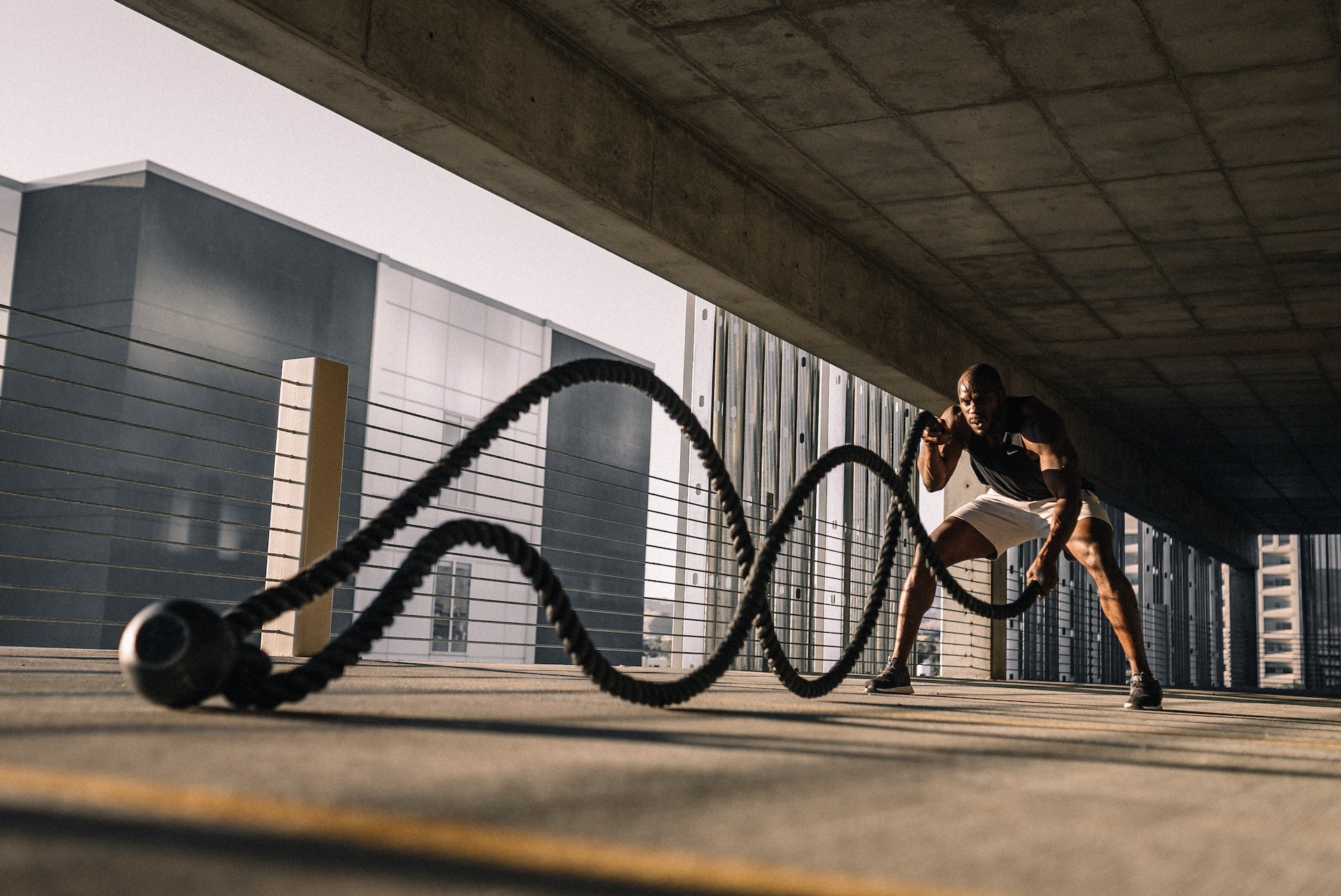Wondering how long pre-workout lasts?
Join the club.
There are many different answers out there and lots of factors that come into play.
At the end of the day, you want to maximize your pre-workout to get the best workout possible while you're at the gym.
That’s why it’s critical to know how long your pre-workout supplement lasts.
And in this article, we’ll show you how pre-workouts work, how long they stay in your body, and, most importantly, how to choose the best pre-workout for your goals.
The Science Behind Pre-Workout Supplements
If you want to better understand how long a pre-workout lasts, you need to understand the science behind this supplement.
One of the main ingredients in any pre-workout that works to give you an energy boost is caffeine.
Caffeine works by blocking specific receptors and chemical messengers in the brain that control critical functions like sleep, cognition, and memory. This makes your body feel like it’s time to act, rather than rest by temporarily lifting fatigue and promoting alertness.
According to the Cleveland Clinic, caffeine reaches its peak about 1 to 1.5 hours after consumption and can stay in your system for up to 10 hours.
Another key ingredient in some pre-workouts to give you that energy boost is creatine.
This amino acid helps your muscles produce more energy during exercise so you can lift heavier weights or exercise at a higher intensity. Specifically, it creates “quick burst” energy to improve your muscles’ performance.
Creatine from supplements usually stays in effect for around 1 hour, like caffeine. If creatine is not in your preworkout, most supplement companies will offer it separately as well and it is a great complement to your preworkout.
There are obviously more ingredients that come into play, but understanding these two key ingredients– how they work, and how long their effects last–gives you the necessary context to answer the main question…
How Long Does Pre-Workout Last?
The average duration of pre-workouts in your body is around 30 minutes to 2 hours.
But pre-workouts contain different ingredients with effects that have varying lengths of time. The following factors also affect the duration of pre-workouts in your body.
1. Ingredients
Pre-workout supplements with arginine increase blood flow by widening blood vessels. According to research, arginine's half-life can range from 30 to 120 minutes, depending on the amount and the individual.
Caffeine has a half-life of about 5 hours, which is longer. It was also found in a study that the acute effects of caffeine begin to manifest themselves after an hour and can continue anywhere between 1.5 to 9.5 hours, depending on the person.
2. Your body and your workouts
Your body mass also plays an important role in the effectiveness of pre-workouts. Adults weighing around 60 kg (130 lb) to 80 kg (180 lb) can take the suggested amount of caffeine– 200 mg-400 mg daily, without any adverse effects. So, if your body mass ranges between the said weight, you can experience increased endurance in your workouts for around 2-9 hours.
Another factor that you can consider is the intensity of your workout. Although the findings regarding these two are mixed, one study from the National Library of Medicine found that creatine, caffeine, and beta-alanine have proven their effectiveness for vigorous intense exercise that lasts almost a day. But this still varies with the amount your body is allowed to take.
3. Your caffeine tolerance
Your sensitivity to caffeine also plays a significant role in the period of time that a pre-workout will stay effective.
For instance, since the average duration of pre-workouts with caffeine lasts around 2-9 hrs, it means that a 200 mg-400 mg of caffeine enables you to experience the effect of caffeine in your system around that time. However, if you have low tolerance to caffeine, it is best that you take pre-workouts that contain caffeine in moderation. The downside of this is that caffeine won't stay in your system for long, unlike those who have an average to a high tolerance.
Other Important Pre-Workout FAQs
How Long Does Pre-Workout Stay In Your System?
There are several substances in pre-workouts, each with a different effect. The length of how long these substances stay in your system and affect you depends on the ingredients' half-life.
Caffeine, creatine, arginine, and beta-alanine are common ingredients of pre-workouts and they tend to last in your system for 4-6 hours. Most of them have an average time of 30-45 minutes before they kick in and around an hour before reaching their peak.
Other factors that dictate how long pre-workout stays in your system:
- your body mass or weight
- serving amount for each ingredient
- your caffeine tolerance
- your physical activity level
- the number of servings you consume during a specific amount of time
How Long Does It Take for Pre-Workout to Kick In?
Pre-workout supplements work just like your energy drink. It takes time before you get fueled by these supplements. But, really, how long does pre-workout take to kick in?
Most of the pre-workouts contain caffeine and arginine. These ingredients have a maximum of 60 to 90 minutes before you feel their effect.
According to research, arginine's half-life can range from 30 to 120 minutes, depending on the amount and the person.
On the other hand, caffeine has a half-life of about 5 hours, which is much longer. According to research, the immediate benefits of caffeine begin to show after an hour and can continue anywhere between 1.5 to 9.5 hours, depending on the person's physique. Other ingredients, such as creatine and beta-alanine, take roughly 30 to 45 minutes to begin working and an hour until peak time.
When Should You Take Pre-Workout?
Pre-workout drinks should be prepared and consumed 30 to 60 minutes before exercising for the best results.
This ensures that the mixture's glucose raises your blood sugar levels, giving you extra energy for the remaining portion of the exercise. Just make sure you avoid taking pre-workouts before you sleep, as this can easily cause sleep disruptions.
If you usually workout late in the evening and this is a concern of yours, consider a stimulant free pre workout.
3 Powerful Benefits of Pre-Workout
1. More energy
We’re all busy, and that means you most likely have to exercise during a window where you’re really tired. Maybe it’s after a long day at work or very early in the morning. Either way, it’s really difficult to muster the energy and motivation to do an intense workout.
That’s where pre-workouts come in. The stimulants and ingredients included in good pre-workouts help you get the energy boost you need.
And if you choose an all-natural pre-workout, you get that energy boost without harmful side effects from unnatural ingredients (which are present in many popular pre-workouts).
2. More focus
The same ingredients that help you with energy also help you increase your focus. And with more focus comes even more motivation.
Pre-workout helps you keep your eye on the prize–having a good workout. And that means it’ll help you avoid walking around excessively between sets, scrolling on your phone, and other workout-killing distractions.
3. Quicker recovery
Often the most overlooked benefit pre-workouts provide is quicker muscle recovery. When your muscle soreness and fatigue lasts more than a day, you run the risk of having to skip workouts (or at least have less intense ones).
But luckily, pre-workouts contain amino acids that support muscle recovery and help you bounce back into your program.
3 Reasons to Be Cautious About When You Take Pre-Workout (And What Kind You Take)
1. Caffeine toxicity
Most pre-workouts contain around 300 mg of caffeine, and It is recommended to take 200mg-400mg of caffeine per day.
Although everyone has different levels of caffeine tolerance, exceeding this amount may cause harmful effects on your body, such as dizziness, anxiety, and restlessness.
So, make sure to look into pre-workouts that don’t contain excessive amounts of caffeine.
2. Niacin toxicity
Niacin, which is also common in pre-workout supplements, has tons of benefits that make it popular with heavy lifters.
But taking high doses of it may cause liver damage and digestive problems such as diarrhea, nausea, and vomiting.
You should only take 14 mg-16 mg of niacin for health and safety precautions. So, make sure you understand how much Niacin is present in your favorite pre-workout.
3. Unnatural ingredients
Many pre-workouts include additives, artificial colorings, artificial sweeteners and more. These ingredients have been linked to serious health issues later in life (like cancer).
That’s why it’s critical to use an all-natural pre-workout. And that’s exactly what we provide here at Legacy Performance. Our pre-workout has natural ingredients and is free from artificial flavors, sweeteners, and dyes.
Maximize Your Results with an All Natural Pre-Workout
Pre-workout can be an incredible tool to help you get more out of your workouts. But not all supplements are made equal.
Many vary in how long they last, their ingredients, and more.
That’s why it’s critical to know how to use them properly.
Be sure to take your pre-workout within about 30 minutes of your workout to get the best results.
And if you want to make sure your pre-workout is free from harmful artificial ingredients and still provides the energy and recovery you need, click here to try Legacy Performance for 20% off.





